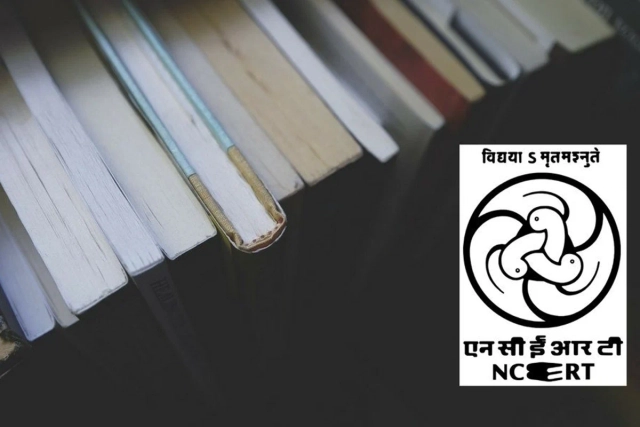News Brief
NCERT Panel Suggests Replacing India With Bharat In School Textbooks, Highlight Hindu Victories: Report
- These unanimous recommendations are outlined in the committee's final position paper on social sciences.
- This initiative is part of the NCERT's efforts to align the school curriculum with the National Education Policy 2020.

NCERT (Picture via Twitter)
A high-level committee responsible for the revision of school curriculum, as constituted by the National Council of Educational Research and Training (NCERT), has put forth significant recommendations, Hindustan Times reported.
Committee Chairperson CI Issac disclosed on Wednesday (25 November) that one of the central proposals is to replace the term 'India' with 'Bharat' in educational textbooks. Furthermore, the committee advocates the introduction of 'classical History' in place of 'ancient History' within the curriculum.
These unanimous recommendations are outlined in the committee's final position paper on social sciences, which serves as a pivotal guideline for shaping the new NCERT textbooks. Issac emphasised that this move aligns with the fact that Article 1(1) of the Constitution already states, "India, that is Bharat, shall be a Union of States."
Bharat, an age-old name, is deeply rooted in ancient texts like the Vishnu Purana, which dates back 7,000 years, as per Issac. He explained that the term 'India' became common usage only after the establishment of the East India Company and the Battle of Plassey in 1757. Consequently, the committee's unanimous recommendation is for 'Bharat' to be employed in textbooks across various school grades.
The official use of the name 'Bharat' gained prominence when G20 invites, hosted by the President, were issued in the name of the 'President of Bharat' rather than 'President of India.' Moreover, the nameplate for Prime Minister Narendra Modi during the Summit in New Delhi also read 'Bharat' instead of 'India.'
Issac further expounded on the committee's recommendations, emphasising that it calls for the introduction of 'classical history' in lieu of 'ancient history' within the educational curriculum. He noted that British colonial interpretations had divided Indian history into three phases - ancient, medieval, and modern, perpetuating a perception of India as a land shrouded in darkness and devoid of scientific progress.
However, Issac pointed out that India had notable achievements during that era, including Aryabhatta's contributions to the solar system model. Hence, the committee suggests that the classical period of Indian history should be taught in schools alongside the medieval and modern eras.
In addition to these changes, the committee also advocates highlighting "Hindu victories" in educational materials. Issac pointed out that current textbooks often focus on failures but neglect to mention victories over Mughals and Sultans. Issac, who is also a member of the Indian Council of Historical Research (ICHR), was among those making this recommendation.
Beyond these historical modifications, the committee further recommended the introduction of the Indian Knowledge System (IKS) across all subjects in the curriculum.
This entire initiative is part of the NCERT's efforts to align the school curriculum with the National Education Policy (NEP) of 2020. In this context, the council has recently formed a 19-member National Syllabus and Teaching Learning Material Committee (NSTC) to finalise the curriculum, textbooks, and learning materials for these classes.
Support Swarajya's 50 Ground Reports Project & Sponsor A Story
Every general election Swarajya does a 50 ground reports project.
Aimed only at serious readers and those who appreciate the nuances of political undercurrents, the project provides a sense of India's electoral landscape. As you know, these reports are produced after considerable investment of travel, time and effort on the ground.
This time too we've kicked off the project in style and have covered over 30 constituencies already. If you're someone who appreciates such work and have enjoyed our coverage please consider sponsoring a ground report for just Rs 2999 to Rs 19,999 - it goes a long way in helping us produce more quality reportage.
You can also back this project by becoming a subscriber for as little as Rs 999 - so do click on this links and choose a plan that suits you and back us.
Click below to contribute.
Latest